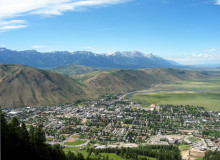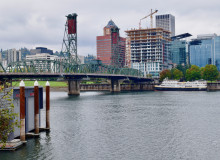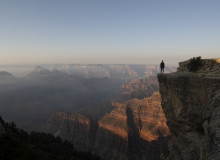Green Living
Planet Forward Senior Correspondent
Despite the devastating impacts of colonization, the Kashia Band of Pomo Indians have persevered in restoring their ecosystem and culture. Learn how the Kashia have lived in and managed the Sonoma County coastal environment for centuries.
Planet Forward Correspondent | Sewanee: The University of the South
Surrounded by protected forest, residents of Ambodivohitra and land managers at the World Wildlife Foundation reveal how commodity crops and wood use affect on-the-ground conservation practices in the rainforests of northeast Madagascar.
George Washington University
Recycling is not the answer — not anymore. Here's how a circular economy can both reduce waste and lessen the climate crisis — and why we need to change our mindset now.

A row of Lime scooters ready for public use in Austin, Texas. (Luis Tamayo/Creative Commons)
Planet Forward Senior Correspondent | American University
Despite drawing ire from some, pay-by-ride electric scooters are rapidly gaining popularity in urban areas across the country, creating a greener option for getting around town.
Planet Forward Correspondent | Eckerd College
Based on her experience, Planet Forward Correspondent Cassandra Hobar challenges the basis of anti-captivity movements, while supporting zoos and aquariums for the work they do in conservation and species preservation.
Planet Forward Senior Correspondent | Middlebury College
After years without fresh produce, this isolated community in Wyoming created an innovative farm that yields more than 100,000 pounds of food per year.
Planet Forward Senior Correspondent | University of Wisconsin-Madison
A community center in Madison, Wisc., provides important outdoor experiences for students who may not get them as often as they'd like.
Planet Forward Senior Correspondent | Reed College
While Portland is known for its progressive politics, the nearby Williamette River revealed environmental neglect, spurring a grassroots energy for reform.
Planet Forward Correspondent | Northeastern University
As our national parks suffer in the wake of the government shutdown, I reflect on why national parks matter to me, and why they should matter to you, too.

Petcoke piles are stored at a Koch Bros. storage site on the Calumet River in Chicago, Illinois, in 2014. (Terry Evans)
Planet Forward Correspondent | Loyola University Chicago
Communities outside of Chicago stifled by BP's largest oil refinery are taking defiant steps to end its expansion of production—and dangerous emissions.

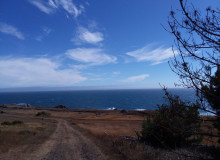
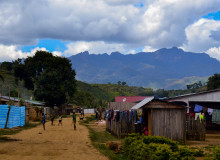
.jpg%3Fitok=YoNajIW7)
